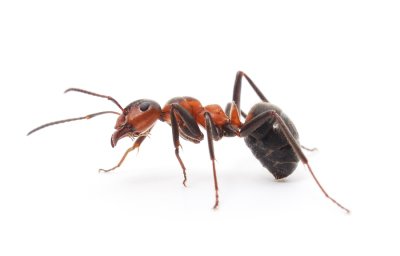
Introduction:
Ant invasions can be a persistent challenge for homeowners, requiring effective ant control methods to maintain a pest-free living space. This article explores various strategies that not only eliminate existing ant colonies but also prevent future infestations for a harmonious home.
Understanding Ant Behavior:
Effective ant control begins with understanding ant behavior. Ants follow scent trails, communicate through pheromones, and establish colonies. By comprehending their habits, homeowners can implement targeted strategies to disrupt these patterns and achieve lasting control.
Sealing Entry Points:
Ants often enter homes in search of food and water. Sealing entry points such as cracks, gaps, and openings around doors and windows is a fundamental step in ant control. By blocking their access, homeowners can significantly reduce the likelihood of ant infestations.
Natural Repellents and Essential Oils:
Natural repellents, including essential oils like peppermint, cinnamon, and citrus, serve as effective ant deterrents. Applying these oils along ant trails and entry points disrupts their pheromone trails, confusing and repelling them. This eco-friendly approach is safe for residents and the environment.
Baits and Boric Acid:
Baits are a popular method for ant control. Using ant baits containing boric acid can be particularly effective. Ants are attracted to the bait, consume it, and bring it back to the colony, ultimately eliminating the entire nest. Boric acid is a low-toxicity option for targeted ant control.
Ant-Repellent Plants in Landscaping:
Strategically planting ant-repellent vegetation around the home serves as a preventive measure. Plants like mint, basil, and tansy emit scents that ants find displeasing. Incorporating these plants into landscaping can create a natural barrier, deterring ants from approaching the property.
Caulking and Repairing:
Maintaining a well-sealed home through caulking and repairing is crucial for ant control. Check for and promptly fix any leaks, holes, or damaged areas that might attract ants. This not only prevents entry but also contributes to the overall integrity of the home.
Diatomaceous Earth for Ant Control:
Diatomaceous earth, a natural and non-toxic substance, is effective in controlling ants. This fine powder damages the ants’ exoskeleton, dehydrating and ultimately eliminating them. Sprinkling diatomaceous earth along ant trails and entry points provides a safe and environmentally friendly solution.
Professional Ant Extermination Services:
For persistent ant problems or large infestations, seeking professional extermination services is advisable. Pest control professionals can assess the extent of the infestation and apply targeted treatments to eliminate ants effectively. This is particularly important for species with complex or hidden nests.
Maintaining Cleanliness:
Ants are attracted to food residues, spills, and crumbs. Regular cleaning is a crucial aspect of ant control. Wiping down surfaces, storing food in airtight containers, and promptly cleaning up spills minimize attractants, making the environment less inviting for ants.
Educational Outreach for Ant Prevention:
Educational outreach within communities is essential for effective ant control. Sharing information about ant behavior, prevention methods, and eco-friendly solutions empowers residents to take proactive measures. This collective effort enhances the overall success of ant control strategies.
Linking to Effective Ant Control Methods:
Explore effective and sustainable ant control methods at Effective Ant Control Methods. Discover how these strategies not only eliminate current ant issues but also contribute to a pest-free and eco-conscious living environment. Implement these methods for a harmonious and ant-free home.
Conclusion:
Achieving effective ant control involves a combination of understanding ant behavior, implementing targeted strategies, and maintaining a proactive approach. By adopting eco-friendly and sustainable methods, homeowners not only eliminate existing ant problems but also contribute to a healthier and more harmonious living space.
